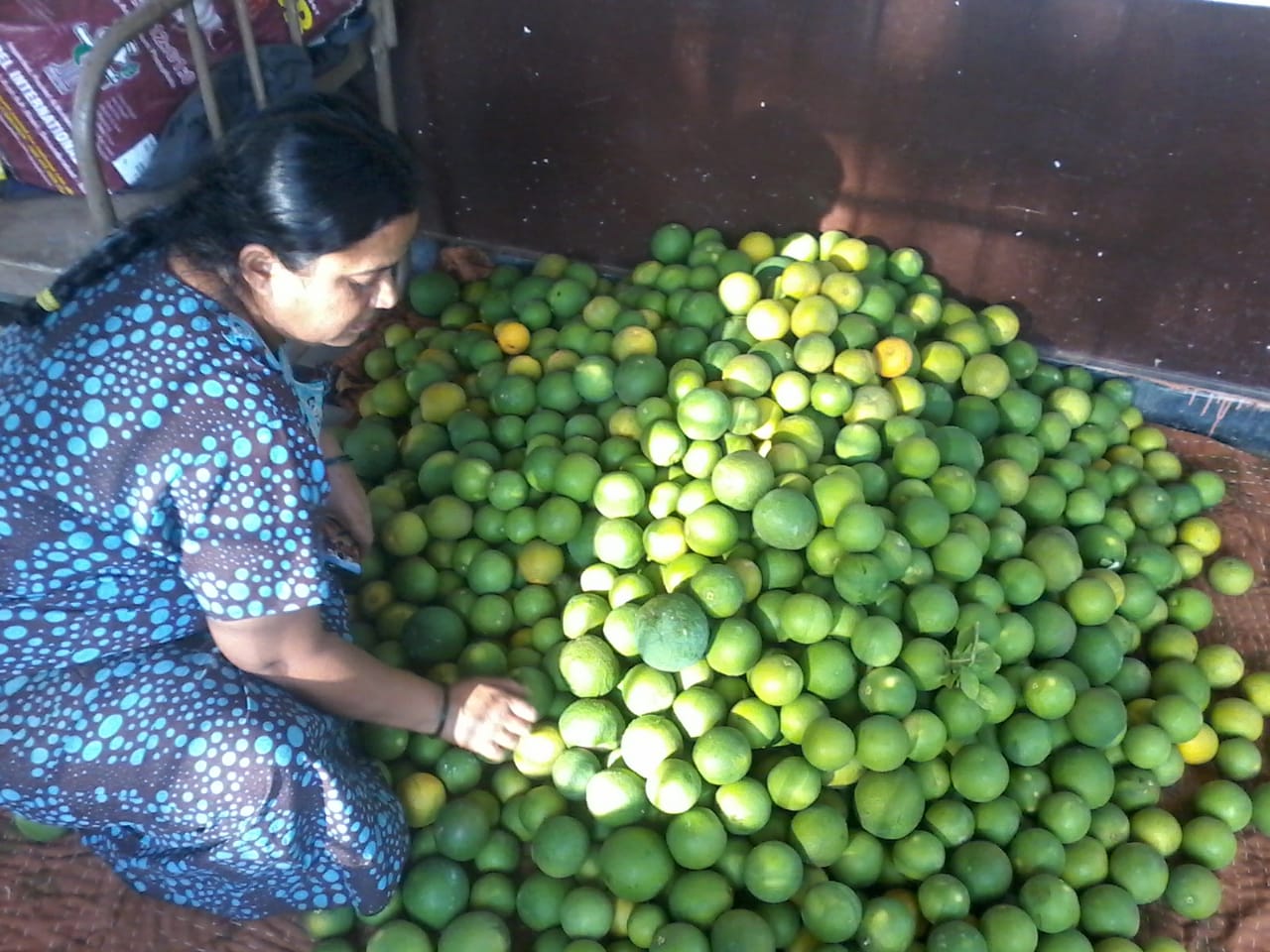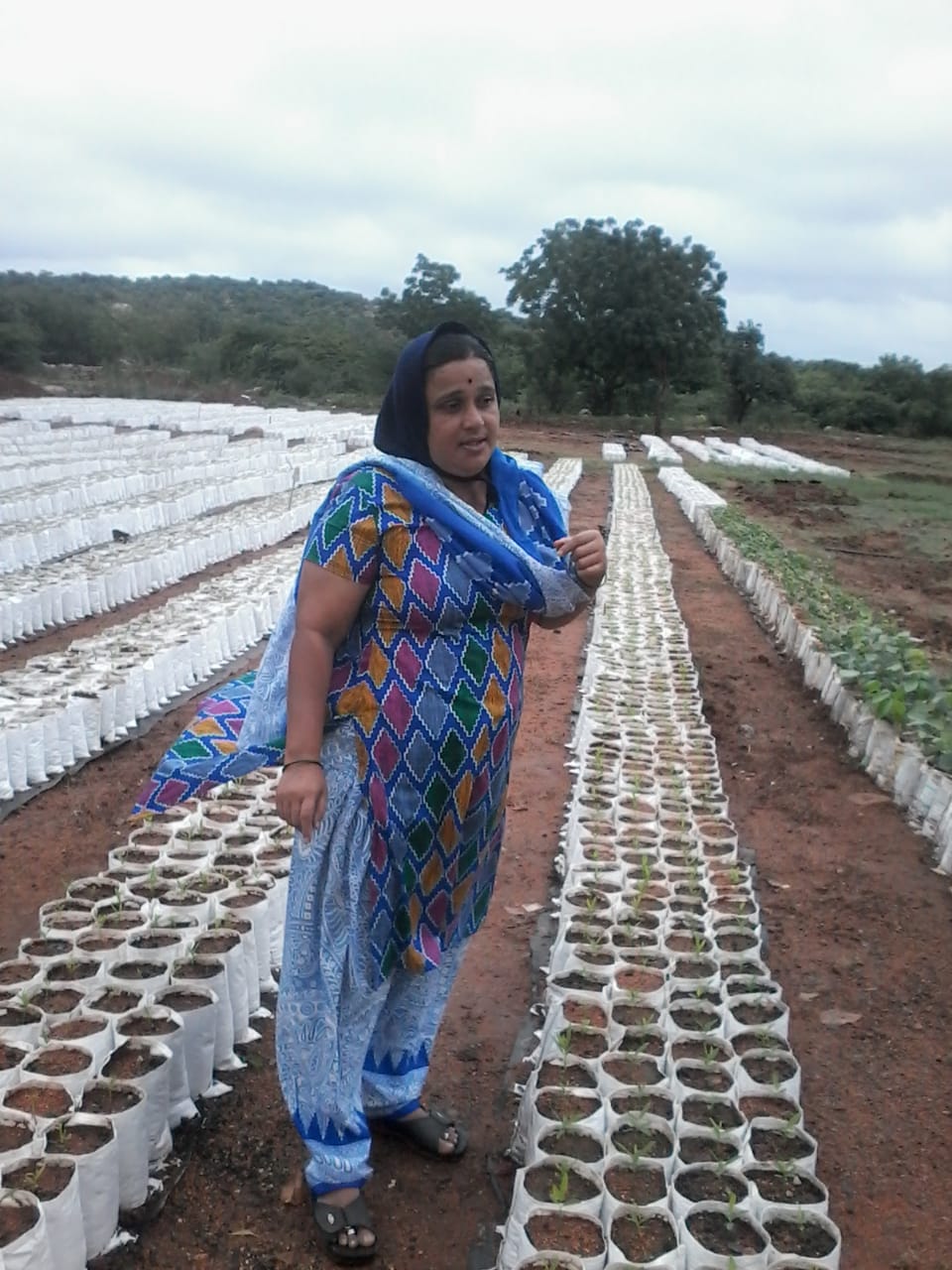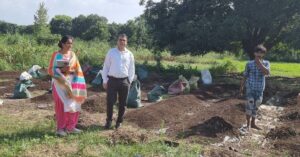Forced to Give up Infosys Job, Karnataka Woman Grows 8000 Fruit Trees in Barren Land
Given barren land by her husband, Kavita, a native of Karnataka’s Raichur district learn't cultivation and grew sandalwood, pomegranate, mango, lemon, drumstick and coconut trees.

Many assume education is a must to attain success. But Kavita Mishra, a sandalwood and fruit cultivator, is challenging this notion with her hard work and dedication. “The difficult road I traversed has led me to this beautiful destination. Like all women, I too had many dreams when I arrived at my husband’s home. But I never expected that my biggest dream would never take off because him,” Kavita, who holds an MA in Psychology and Diploma in Computer Science, tells The Better India.
After marriage, Kavita received an offer from Infosys to work for them. But her husband, Umashankar, coerced her to give up the job. As everyone at Umashankar’s home was into cultivation, he forced his wife to do the same. He gave Kavita eight acres of the 43-acres he owned, imagining that his wife would be happy to have an area for cultivation, as she too belonged to an agricultural family.
From Programming to Fruit Cultivation

Despite her agricultural background, Kavita was more interested in software programming than any farming, leave alone sandalwood or fruits. However, instead of being upset by her husband’s coercion, she decided to try her hand at cultivation 11 years ago. As the first step, she sold her jewellery, which had been gifted to her by her parents for her wedding.
“The land my husband gave me was barren, and I was confused about what to do with it initially,” says Kavita, a native of Karnataka’s Raichur district. “I cleaned the land myself, and thought I would do some cultivation, but didn’t have much hope. With the money I received from selling my gold, I learned about the process of starting cultivation with the help of a few experts in the state. I learned the lay of the land and started growing fruits.”
The first fruit crop she cultivated was pomegranate, which saw a good harvest and earned her a decent profit. So she kept at it, choosing to get into the more profitable sandalwood farming. She collected sandalwood saplings from different farmers across Karnataka and Telangana.
“In our plot, we have only two inches of water in our borewell, so we can’t cultivate traditional crops such as paddy or ragi, as they need more water,” she says. “During monsoon, trees hold rainwater, which is used for four months, and for the remaining eight, we use our bore water. I believe that mother earth won’t leave our hand, even if our family members leave us. I have trust in her, and she still helps me in all ways possible in cultivation,” says Kavita. Kavita also believes organic fertilisers give good productivity, so she uses cow urine and sheep dung, which are available on her farm.
“The farm is also home to birds and snakes. I personally believe that if we don’t disturb them, they won’t harm us. These snakes and birds help keep insects and rats away instead of pesticides,” Kavita says.
Today, apart from sandalwood, Kavita also cultivates 8,000 fruit-bearing trees – including Mango, Guava, Custard Apple, Amla, Sweet Lime, Lemon, Coconut, Drumstick, and Jamun. She also has 800 Teakwood trees on her land.
Hi-Tech Security System

“In our farm, we have dog squads to alert us about strangers entering to steal sandalwood trees. Apart from this, we have also inserted a microchip in our trees. In case someone tries to put an axe in, the tree will vibrate, which in turn will send an alert to my smartphone. If the thief takes the tree before we reach the farm, we can track it using GPS too.” Kavita shares. Such security is a must, as the theft of sandalwood trees is a serious and ever-present concern.
Speaking about the profits, she says, “We get Rs 20-30 Lakh per month. Fruit trees generate a monthly and yearly income. The forest trees (like Teak) are ‘fixed deposits’ for our retirement. We sell our farm products by putting up a stall for 10-15 days on the Hyderabad-Goa road. and one is put up in front of the farm.”
The farm also sells the saplings of the fruit trees by grafting method to farmers. Price of the fruits is fixed as per the Bengaluru market. Kavita is also ready to help beginners in farming. People from different parts of India visit her farm on Sundays to learn more about it.
For more details about the farm, one can contact 8861789787.
(Edited by Divya Sethu)
If you found our stories insightful, informative, or even just enjoyable, we invite you to consider making a voluntary payment to support the work we do at The Better India. Your contribution helps us continue producing quality content that educates, inspires, and drives positive change.
Choose one of the payment options below for your contribution-
By paying for the stories you value, you directly contribute to sustaining our efforts focused on making a difference in the world. Together, let's ensure that impactful stories continue to be told and shared, enriching lives and communities alike.
Thank you for your support. Here are some frequently asked questions you might find helpful to know why you are contributing?


This story made me
-
97
-
121
-
89
-
167














